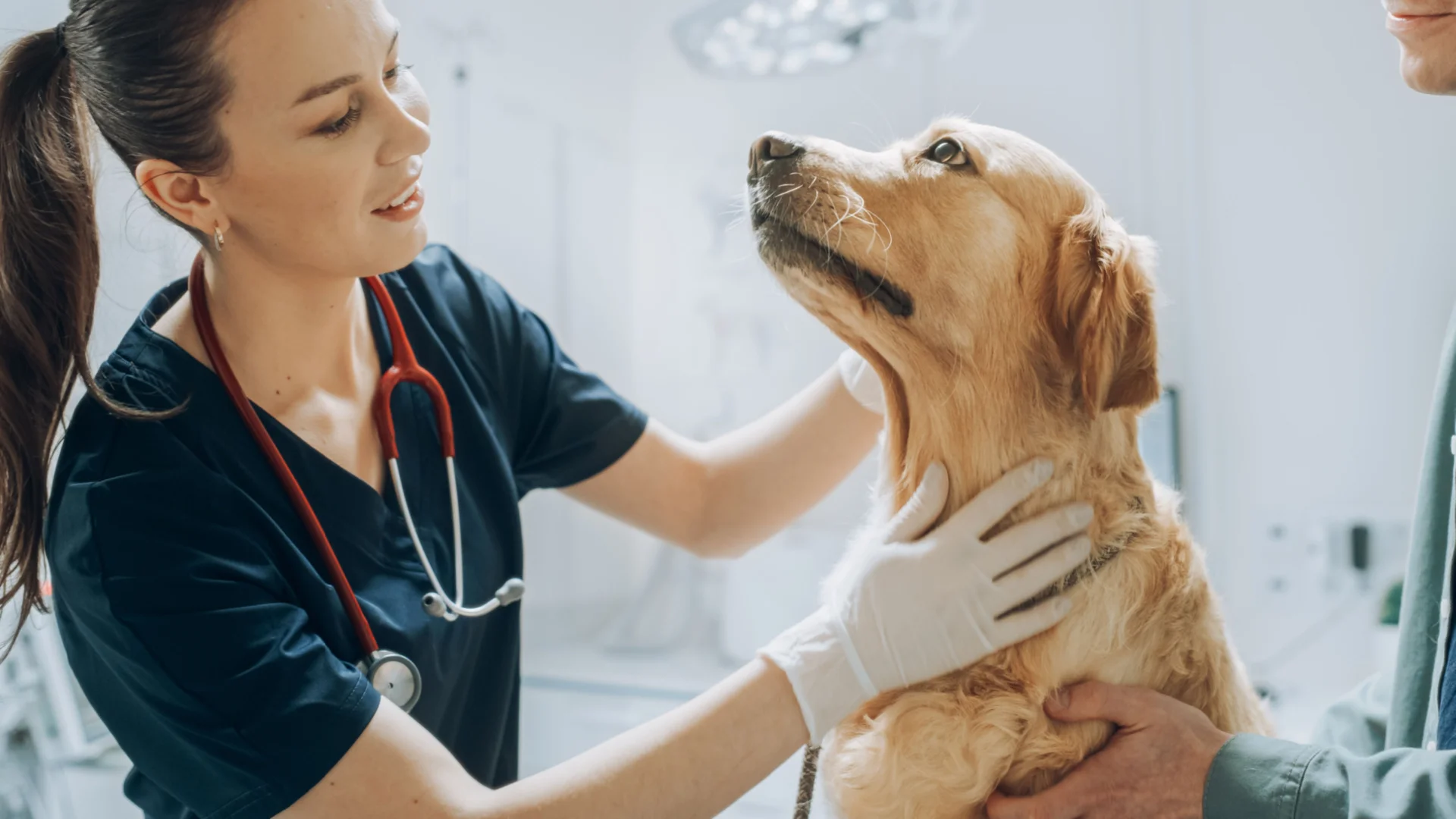
Has your pup been sneezing for a few days, or worse, a few months? You may be surprised to learn just how complicated that one clinical symptom can be. The underlying cause may be simple or serious and it can be frustrating for both pet owners and veterinarians alike during the process of working up Fido for a diagnosis. Next-Gen Sequencing (NGS) technology can assist your veterinarian as they determine the root cause of your pet pal’s symptoms.
Rhinitis and Sinusitis: What Does It Look Like?
Rhinitis is defined as inflammation of the mucous membranes of the nose whereas sinusitis involves inflammation of the entire nasal cavity. (1) Their clinical manifestations, however, appear similar. All breeds of dogs are susceptible to these disease processes, but dolichocephalic breeds (long nosed dogs such as Collies, German Shepherds, Retrievers, etc.) are overrepresented (4). Symptoms will vary depending on the severity or chronicity of the problem, but the following is a list of what you may see (1):
- Sneezing – mild to severe
- Reverse sneezing (often confused with a choking episode)
- Nasal discharge – unilateral (one nostril) or bilateral (both nostrils)
- Stertor (loud breathing, congestion)
- Pawing at face
- Facial swelling
- Epistaxis (nosebleed)
- Conjunctivitis (inflammation of the mucous membrane in the eye. May have associated eye drainage)

What Causes Sneezing and Nasal Discharge in Dogs?
This is where things get murky. Everyone sneezes now and again, including your pooch. Mild short-lived sneezing is usually nothing to be alarmed about, but if your furry friend has violent sudden onset sneezing, nasal discharge/congestion, a swollen face, epistaxis, or it just won’t go away, it’s time to seek veterinary attention. The list of rhinitis/sinusitis causes is, unfortunately, a long one (2):
- Tooth root abscess
- Viruses (e.g. Canine Influenza, Canine Distemper)
- Fungal Infections (e.g. Aspergillosis)
- Parasites (e.g. nasal mites)
- Foreign body (e.g. blade of grass, grass awn, seeds, etc.)
- Idiopathic (unknown cause) lymphocytic-plasmacytic rhinitis
- Allergies
- Cancer
- Bacteria
- Birth defects (e.g. cleft palate)
- Facial or Head trauma
Testing and Treatment for Sneezing and Nasal Discharge
The variety of underlying causes means that there is not one diagnostic test or treatment plan that will result in a resolution of clinical symptoms for all dogs. Some of these conditions are curable and others may require chronic management or are, unfortunately, incurable (e.g. cancer). Veterinarians will formulate their plan based in large part on history and physical presentation. Some situations may be diagnosed on physical examination (e.g. tooth root abscess), though testing typically involves radiography (X-rays, CT scan), rhinoscopy, nasal biopsy, and deep nasal tissue culture (1). Respiratory PCR testing may also be indicated if an infectious cause is suspected (especially viral). Antibiotics are often a routine part of the treatment plan, but not usually for the reason pet owners think. Bacterial infections are rarely the primary cause of rhinitis/sinusitis in dogs, though infections with Bordetella bronchiseptica do occur (1). More often bacteria are secondary invaders overgrowing in the face of inflammation resulting in a disproportionate amount of bacteria that are not a part of the normal nasal biome. The end result is an exacerbation of clinical symptoms (5). These bacteria may harbor resistant genes to antibiotics and make achieving resolution of symptoms challenging and confusing. It’s important to identify these secondary invaders and treat them appropriately on the road to diagnosis.
While culture and sensitivity testing for bacteria has historically been the gold standard of diagnostics, it has its limitations. Not all bacteria grow sufficiently well in the lab or the lab may not conduct testing on the particular organism involved. (e.g. anaerobes, mycobacteria, fungi, and mycoplasma) (3). Next-Gen Sequencing (NGS) Technology removes these hurdles and allows for consistent identification of bacterial and fungal organisms that may be involved in your dog’s sinus problem. It is one tool of many that veterinarians use to piece together the puzzle of your individual dog’s diagnosis and treatment plan. Removing and neutralizing secondary bacterial infections from the underlying cause of rhinitis/sinusitis in your pet is an important step in decreasing discomfort and symptoms. Better yet, NGS Technology is an additional test used in diagnosing fungal infections which are challenging to confirm.
Depending on your pet’s diagnosis, treatment protocols may involve tooth extraction, foreign body removal, antibiotics, steroids to reduce inflammation, antifungals, surgery, and chemotherapy. Owners can help their pets and their veterinarians by being patient through the process, follow recommended treatment plans, and attend follow up visits on schedule in order to monitor response to treatment.
The MiDOG All-in-One Microbial Test utilizes NGS technology to detect and quantify microbial DNA through untargeted and comprehensive sequencing and quantitative comparisons to reference databases. The MiDOG NGS technology provides a useful opportunity to shed light on the microbial makeup of your dog’s sinuses for clinical application. The MiDOG microbial test is grounded on scientific research that provides veterinarians DNA evidence for the guided treatment of canine rhinitis and sinusitis. A MiDOG microbial test provides the technologies for the accurate identification of all microorganisms within a pet’s sample, independent of culturing.
Find out if your vet uses MiDOG before you book your next appointment!
References:
- Caroline C. Tonozzi, DVM, DACVECC, Mission Veterinary Partners, October 2022, Rhinitis and Sinusitis in Dogs and Cats, Merck Veterinary Manual https://www.merckvetmanual.com/respiratory-system/respiratory-diseases-of-small-animals/rhinitis-and-sinusitis-in-dogs-and-cats
- Becky Lundgren, DVM, 05/05/2014, Rhinitis in Dogs and Cats, Veterinary Partner (VIN), https://veterinarypartner.vin.com/default.aspx?pid=19239&id=6274586
- Importance of Antimicrobial Susceptibility Testing, Michigan State University, Veterinary Diagnostic Laboratory, https://cvm.msu.edu/vdl/laboratory-sections/bacteriology-mycology/culture-and-sensitivity
- Erika Meler, Marilyn Dunn, and Manon Lecuyer, January 2008, A Retrospective Study of Canine Persistent Nasal Disease: 80 Cases (1998-2003), The Canadian Veterinary Journal, National Library of Medicine, https://www.ncbi.nlm.nih.gov/pmc/articles/PMC2147700/
- Barbara Tress, Elisabeth S. Dorn, […], and Bianka S. Schulz, May 1, 2017, Bacterial Microbiome of the Nose of Healthy Dogs and Dogs with Nasal Disease, PLos One, National Library of Medicine, https://www.ncbi.nlm.nih.gov/pmc/articles/PMC5411083
Categories: Dogs, Next-Gen DNA Sequencing Technology, Pet Health, Safety and Wellness, Pet Parents, Respiratory Infection

